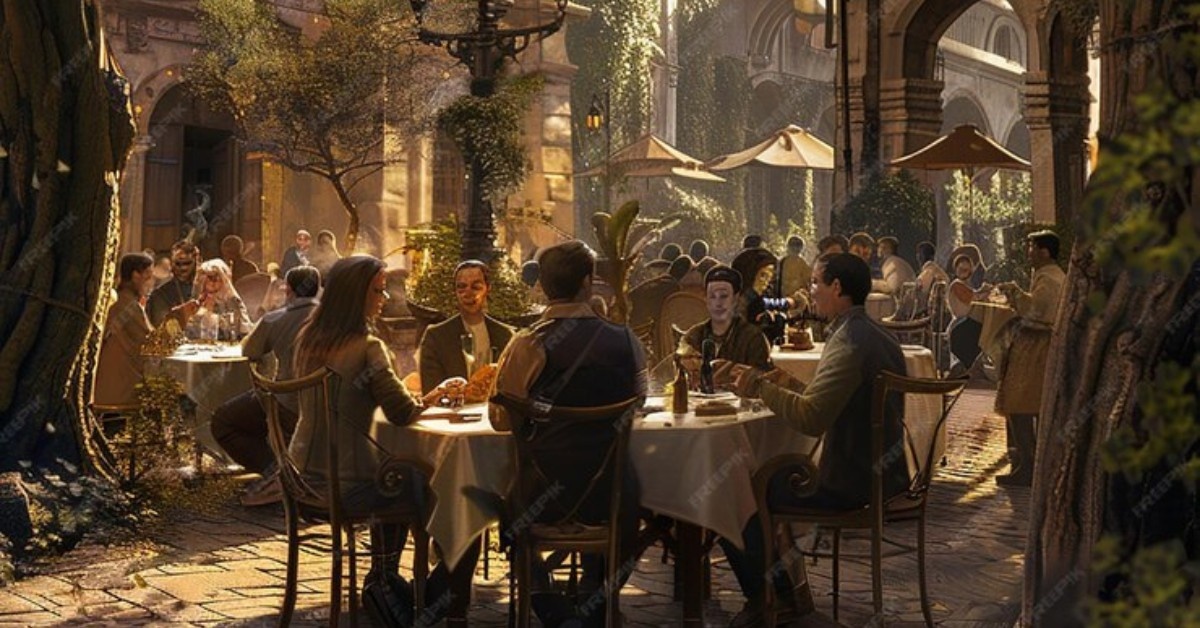When you think of traditional dining experiences, images of quaint cafes and rustic bistros often come to mind. But in Portugal, there’s a distinct type of eatery that stands out for its charm and authenticity: the tasca. This humble establishment may not have a direct translation in other languages, but its essence is deeply woven into the fabric of Portuguese culture. Let’s embark on a journey to uncover what makes a tasca so special and why it’s an integral part of Portugal’s culinary landscape.
What Makes a Tasca Unique?
A tasca is more than just a place to grab a bite; it’s a slice of Portuguese heritage served on a plate. Unlike other dining establishments around the world, tascas have a unique character that reflects the local culture and history. Here’s what sets them apart:
The Charm of Simplicity
Tascas are known for their no-frills approach. These are not high-end restaurants with elaborate decor and gourmet menus. Instead, a tasca focuses on simplicity and authenticity. The décor is often modest, with functional furniture and a relaxed atmosphere that invites patrons to feel at home.
Generous Portions, Affordable Prices
One of the defining features of a tasca is its generous portions of hearty, traditional food. The menu usually includes classic Portuguese dishes that are both filling and affordable. From savory stews to grilled meats, tascas serve up meals that are satisfying without breaking the bank.
A Sense of Community
Tascas often become the heart of their neighborhoods. They’re places where locals gather to enjoy a meal, share stories, and connect with one another. The friendly atmosphere and communal vibe make tascas more than just dining spots—they’re social hubs where relationships are forged over good food and conversation.
A Taste of Tradition: Typical Tasca Dishes
The menu at a tasca is a celebration of Portuguese cuisine. While each tasca may have its own specialties, there are some dishes that are commonly found across these eateries. Here’s a look at some traditional offerings you might encounter:
Bacalhau à Brás
Bacalhau, or salted cod, is a staple in Portuguese cuisine. Bacalhau à Brás is a popular tasca dish made with shredded cod mixed with onions, potatoes, and eggs, and garnished with parsley and black olives. It’s a flavorful and comforting dish that showcases the versatility of bacalhau.
Caldo Verde
A bowl of caldo verde is a quintessential Portuguese experience. This green soup is made from kale, potatoes, chorizo, and onions, creating a hearty and satisfying meal. It’s often served with a slice of cornbread, making it a perfect dish for a casual dining setting.
Petiscos
Similar to Spanish tapas, petiscos are small, shareable dishes that are perfect for sampling a variety of flavors. From grilled chorizo to fried calamari, petiscos allow diners to enjoy a range of tastes and textures in one meal.
The Evolution of the Tasca
While tascas have remained true to their roots, they have also evolved over time. Here’s how this beloved establishment has adapted to the changing times while preserving its essence:
Modern Twists on Traditional Fare
In recent years, some tascas have embraced a more modern approach, incorporating innovative techniques and ingredients into traditional recipes. While these updates add a fresh twist to classic dishes, they do so without compromising the authentic flavors that make tascas so special.
A Broader Appeal
With the rise of tourism, tascas have become popular among visitors eager to experience authentic Portuguese cuisine. Many tascas now cater to a broader audience, offering menus in multiple languages and providing insights into the history and culture behind their dishes.
Embracing Sustainability
As sustainability becomes an increasingly important concern, some tascas are adopting eco-friendly practices. From sourcing local ingredients to reducing food waste, these efforts help ensure that tascas remain a positive force in their communities.
The Cultural Significance of Tascas
Tascas are more than just places to eat—they’re cultural institutions that play a significant role in Portuguese society. Here’s why they matter:
Preserving Culinary Heritage
Tascas are instrumental in preserving Portuguese culinary traditions. By serving classic dishes and maintaining traditional cooking methods, these establishments help keep the country’s rich food culture alive.
Strengthening Community Bonds
The communal nature of tascas fosters a sense of connection and belonging. They serve as gathering spots where people from all walks of life come together to share meals and build relationships.
Celebrating Local Flavors
Each tasca offers a unique take on Portuguese cuisine, showcasing regional ingredients and specialties. This celebration of local flavors contributes to the diversity and richness of Portugal’s food landscape.
How to Experience a Tasca
If you’re planning a visit to Portugal and want to immerse yourself in the local culinary scene, a visit to a tasca is a must. Here’s how to make the most of your experience:
Choose a Local Favorite
To truly experience the charm of a tasca, seek out recommendations from locals. These hidden gems are often known only to residents, so ask for suggestions to find the best spots in town.
Embrace the Casual Atmosphere
When dining at a tasca, embrace the relaxed and informal atmosphere. Don’t be afraid to engage in conversation with the staff or other patrons—it’s all part of the experience.
Sample a Variety of Dishes
One of the joys of dining at a tasca is the opportunity to try a variety of dishes. Order a selection of petiscos and traditional entrees to get a full taste of what the menu has to offer.
Enjoy the Moment
A meal at a tasca is more than just eating—it’s about savoring the moment and enjoying the company of others. Take your time, relax, and soak in the experience of dining in a place that feels like home.
Conclusion
A tasca is more than just a restaurant it’s a cultural experience that offers a glimpse into the heart of Portuguese cuisine and community. From its humble origins to its modern adaptations, the tasca remains a cherished institution in Portugal. By embracing its simplicity, generous portions, and communal spirit, tascas continue to capture the essence of what makes Portuguese dining so special. Whether you’re a local or a visitor, experiencing a tasca is an opportunity to connect with Portugal’s rich culinary heritage and enjoy a meal that’s both authentic and memorable.







